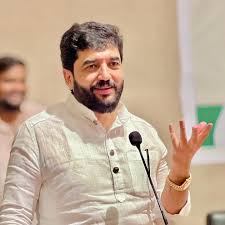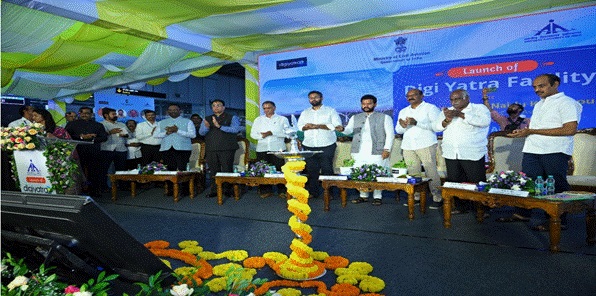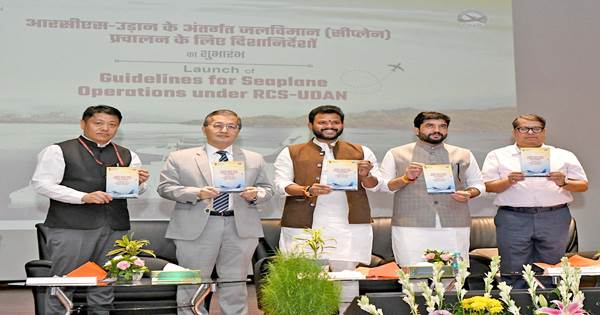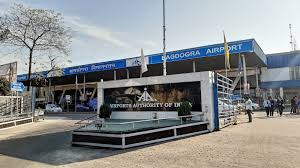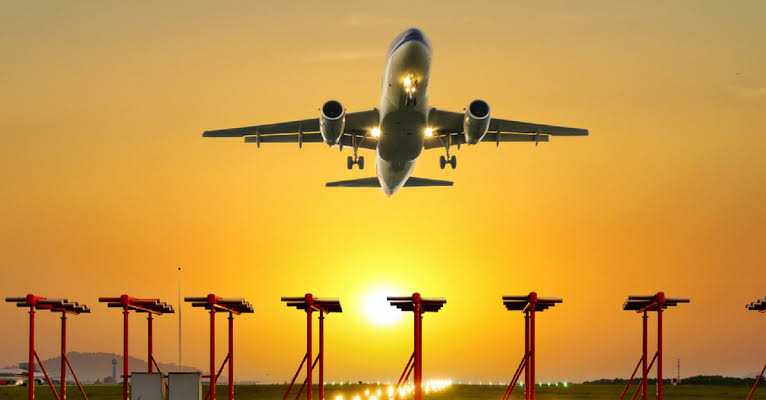Union Minister for Civil Aviation, Kinjarapu Rammohan Naidu has launched the Guidelines for Seaplane Operations in India.
During his address at the event at the Indian Aviation Academy in Delhi yesterday, Union Minister said that these guidelines not only integrate seaplane operations into India’s aviation landscape for transportation, but also create jobs and foster economic empowerment, making seaplanes a symbol of the country’s growth, innovation, and commitment to inclusive development.
He also launched the 5.4 version of the UDAN. Under UDAN 5.4, fresh bids would be invited for the routes which were cancelled for some reason or the other, to provide connectivity on unserved routes. The Minister also announced that the demonstration flights of the seaplane by manufacturer DeHavilland would be held shortly.
Addressing the occasion, he underlined about India’s 7517 km long coastline and extensive network of rivers and lakes which present a unique opportunity for the development of seaplane operations in the country.
On careful study of the situation and drawing from the experience of the helicopter operations, the Government has taken a flexible and pragmatic approach to ensure the growth of seaplane operations.
The guidelines would enable the seaplane operations under RCS to make use of the operations under a Non-Scheduled Operator Permit (NSOP). The extension of the Viability Gap Funding (VGF) under the RCS to seaplane operations would provide the initial fillip to the Operators. While seeking to promote seaplane operations, due care has been taken to ensure the safety and security of the operations.
The Minister further informed that despite initial challenges, particularly in the development of water aerodromes, the Government has taken a flexible and pragmatic approach to ensure the continued growth of seaplane operations.
Drawing inspiration from the success of NSOP operations for helicopters and small aircraft under the RCS scheme, the Ministry of Civil Aviation has now formulated comprehensive Seaplane NSOP Guidelines. These guidelines prioritize the safety and security of operations and define the responsibilities of all stakeholders, ensuring a seamless and efficient seaplane operation across the nation.
The adoption of the Non-Scheduled Operator Permit (NSOP) framework for seaplanes is a significant step forward in the Government’s commitment to enhancing regional connectivity.
Union Minister emphasised on need of favourable policy environment for seaplane industry in India and encouragement on research into technologies like electric seaplanes to reduce carbon emissions and align with India’s commitments under the UN Framework on Climate Change. Our goal is to create a regulatory framework that fosters innovation, promotes growth, and generates employment opportunities for pilots, maintenance staff, and ground crews by prioritizing local workforce development. We envision developing Multimodal Transport Hubs for seamless connectivity between seaplanes and other transport modes.
Addressing the occasion, Union Minister of State for Civil Aviation and Ministry of cooperation, Murlidhar Mohol said that this initiative is poised to not only improve connectivity but also to boost tourism, foster economic growth, and bring the most remote areas of India closer together. The newly launched guidelines represent a well-considered framework designed to ensure that seaplane operations are conducted safely, securely, and efficiently, marking a new era in India’s aviation landscape.
Union Civil Aviation Secretary, Vumlunmang Vualnam said in this event the Ministry of Civil Aviation has taken a proactive approach. We have decided to leverage the Non-Scheduled Operator Permit (NSOP) framework for Seaplane Operations, which has already proven successful for helicopters and small aircraft under the RCS scheme.
The Seaplane NSOP Guidelines we are launching today provide a structured and safe framework for seaplane operations to continue and grow, even as we work towards the full development of water aerodrome infrastructure.
The event witnessed the participation of Director General, DGCA, Vikram Dev Dutt and senior officials from Ministry of civil aviation, State and Union Territory Governments, NSOP and SoP operators, Original Equipment Manufacturers (OEMs), seaplane manufacturers, lessors and media personnel, among others.
